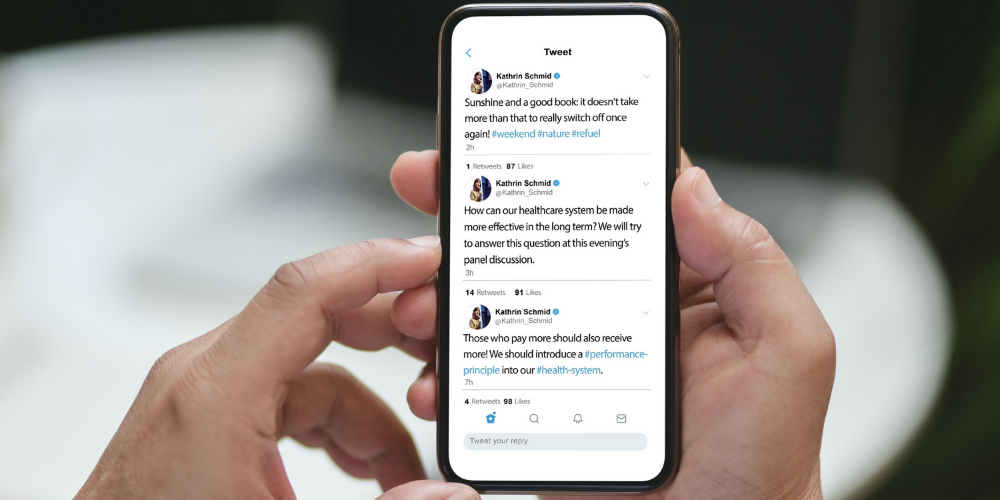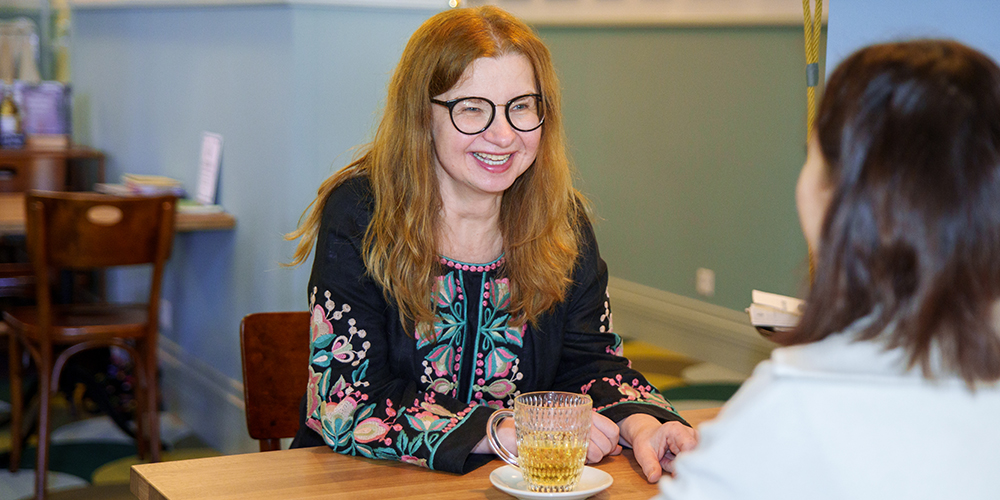Election Campaigning on Social Media: Tweet Style Can Determine Voters’ Choice
The way that politicians use social media can influence how they are perceived by voters. Policy-oriented messages contribute to a more professional impression, while too much private content can have a negative effect. These are the findings of a study conducted with the participation of the University of Basel.
17 December 2021
Social media platforms such as Twitter, Facebook and Instagram have played an established role in politics for years. Many representatives use them as a mouthpiece for their political and private communication: they may on the one hand convey their policy positions, and on the other hand offer glimpses of their personal lives in an effort to appear likable and approachable. In this way, they try to appeal to a range of social media users and to win their votes in the next election.
Researchers from the Universities of Basel, Geneva, Tilburg and Amsterdam have investigated these different communication strategies based on the short message service Twitter. The team led by Professor Stefanie Bailer from the University of Basel showed Twitter profiles of fictitious politicians to 4,358 people from Switzerland and Germany. The subsequent survey revealed that the clearer and more specific the policy content of a politician’s tweet, the more positively it is received. By contrast, the respondents tended to be put off by purely private tweets.
Variation and interaction
In particular, a combination of general and specific policy tweets led to a higher likelihood that the study participants would vote for the politician. This preference for policy tweets held true regardless of the respondents’ level of education. “The style a political candidate uses on social media can therefore be highly relevant in an election,” asserts political scientist Stefanie Bailer.
The study furthermore revealed that differences in the number of interactions on Twitter between representatives and those they represent have a strong impact on the likelihood of the latter to vote for the former. Increased interaction – e.g. responding to a user’s tweet – can enhance the likelihood of receiving a citizen’s vote by around 10 percent.
The effect of party loyalty emerged in the study particularly when the politician presented did not come from the respondent’s preferred party. The consequence was a lower rating of the candidate. This was particularly noticeable among the German participants, since party identification has a stronger effect on the choice of political representatives in Germany. This loyalty played a lesser role among the Swiss citizens surveyed, presumably due to the country’s more strongly personalized voting system, which allows for cumulative voting for individual candidates.
Promoting democracy on Twitter?
“Like Facebook and Instagram, as a social media platform, Twitter offers democratic potential as well as possible populist threats,” Bailer points out. Without the filter of traditional media, it allows politicians to communicate with the public more easily, quickly and frequently. They are free to choose what they want to share with voters. This form of communication enables not only more direct contact, but also more diverse forms of contact with citizens, which is why more and more Swiss politicians are using Twitter and Instagram.
Original publication
Nathalie Giger, Stefanie Bailer, Adrian Sutter, Tomas Turner-Zwinkels
Policy or person? What voters want from their representatives on Twitter.
Electoral Studies (2021), doi: 10.1016/j.electstud.2021.102401
Further information
Prof. Dr. Stefanie Bailer, University of Basel, Department of Social Sciences, tel. +41 61 207 13 81, email: stefanie.bailer@unibas.ch



